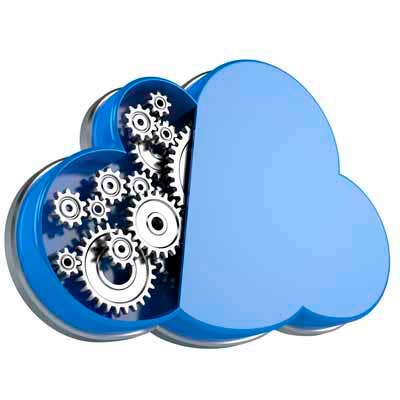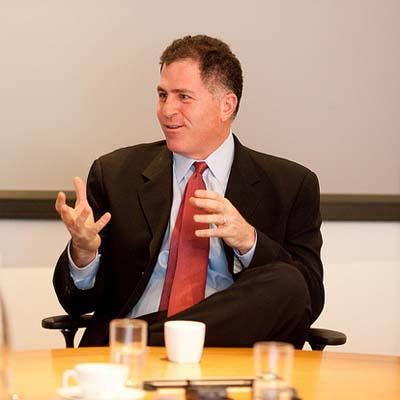Dell CTO Perez: Seven Reasons Dell Is Set To Stick It To Enterprise Competitors

Ready For Prime Time
Paul Perez, who jumped from Cisco Systems to Dell in late March, was the driving force behind Cisco's Unified Computing System (UCS). But in an exclusive interview with CRN, he said primarily blade-based ecosystems like UCS are coming "toward the end of their form factor life cycle" while Dell emphasizes a broad industry-standard reach and commitment to open, hybrid IT environments and API (application programming interface)-based solutions.
Here are seven reasons Perez said Dell is set to stick it to enterprise competitors.

Dell Is Disruptive
Perez said Dell is especially capable of disruption in storage and networking, where it is growing quickly and prepared to "bridge customer environments from old IT to new IT."
That's because Dell isn't weighed down by a lot of legacy Unix or mainframe systems. "We don't have a huge legacy in networking and storage," Perez said. "That opens us up to new thinking."
Perez drew a sharp line between Dell's flexibility and Cisco's adherence to legacy systems.
"Blades are toward the end of their form factor life cycle," Perez said, "and [Cisco] UCS has been primarily a blade-based ecosystem. PowerEdge FX represents the future of computing form factors."

Dell Is Ready For Hybrid Enterprise Environment
"What customers will care about is not what server they pick," Perez said. "It's really the operating environment." Being an enterprise CTO carries some significant hardware implications, but Perez said he's just as dedicated to software.
"The future of the IT environment at customers will be one that is an ensemble -- a combination of on-premise, with hybrid cloud, hosting at one or more cloud providers, and consumed as a service. In that environment, what are the implications? It's about being optimized for software-defined storage, compute, evolving from physical to virtual to containers and wrapping app service around that container. It's a much higher density from an app perspective. Implications for underlying hardware: Evolve to be X86-optimized, move toward Dell.

Dell Is Private
Being private shuts Dell out of Wall Street's funding apparatus, but it also takes quarterly earnings pressure off the company's back. For Perez, being private gives Dell an added advantage: The competition often doesn't know what the company is doing until it's already done.
"It's hard to figure out what we're doing until they see the customer proof points and the customer wins emerge in the market," Perez said. "That's exactly how I started noticing Dell -- through customer chatter."

Customers' Focus Is Changing, Dell Is Ready To Change With It
Perez has noticed a change toward what he calls the application program interface economy, which emphasizes flexibility, speed and integration. It's a shift Dell is ready to capitalize on, he said, and he's spent much of his early time at Dell talking with customers and partners about the best ways to make that change.
"There's been an interesting transition happening in the market where things used to be a web economy, and it's in a transition to becoming an application economy. I would say that today we're seeing an API economy. Customers' focus isn't necessarily on developing applications. Many do, but it's really about how quickly can you tile together a service through the integration of multiple APIs from services that already exist?"

Dell Can Move Quickly
"Cisco has clearly grown a significant market share. So, whatever they have done, and what I helped them do while I was there, a lot of it has been right," Perez said. "But the question is, how well can it stand the test of time? In our case, what we care about is the fact that we can change faster."
To ensure that speed, Perez is focusing on what he calls the application program interface economy. "The velocity of service deployment is a key priority for many customers. What we've chosen to do is take the angle of the API economy. That is one of the foundations of what we call the future-ready enterprise. Even though I'm in charge of enterprise, which implies infrastructure, I'm partnering with software, because we'd like to define a Dell architecture for what the future operating environment is."

Broad Market Reach
In addition to competing with Cisco on its own ground, Dell has penetrated markets that Cisco traditionally has not, including overseas markets and the small- and midsize business market, Perez said.
"Dell has the benefit of a broader market reach," he said. "I think that, historically, Cisco has a price floor in the market, and you have not seen Cisco play well, for example, in the small- and medium-size business space. You haven't seen UCS play as aggressively overseas, in emerging markets where Dell, I believe, is stronger. We're using industry-standard platforms for networking. We give customers the choice on network operating systems, and we're rallying around industry-standard network orchestration tools. We can bring a wider diversity of choice to customers."

Hands-On Leadership
Perez wouldn't criticize Cisco CEO John Chambers directly, but his assessment of what makes Michael Dell and his senior leadership team attractive is crystal-clear.
"I was very impressed with the conversations I had with Michael [Dell] and the opportunity to work at a company that had an activist CEO that is hands-on and very engaged was very attractive."
On Chief Commercial Officer and President Marius Haas, Perez said, "I have a lot of respect for him in terms of his ability to manage a business and drive a business strategy, because at the end of the day, a technology strategy is in support of a business strategy. There is a procession of talent that is at the top of our game that has been joining Dell because they see something. What they see is the opportunity to expand, particularly in the enterprise space."